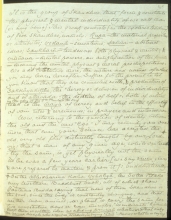Страница 25
It is the group of Skandhas, that form and constitute the physical and mental individuality we call man (or any being). This group consists (in the exoteric teaching) of five Skandhas, namely: Rupa — the material properties or attributes; Vedana — sensations; Sanna — abstract ideas; Sankhara — tendencies both physical and mental; and Vinnana — mental powers, an amplification of the fourth — meaning the mental, physical and moral predispositions. We add to them two more, the nature and names of which you may learn hereafter. Suffice for the present to let you know that they are connected with, and productive of Sakkayaditthi, the "heresy or delusion of individuality" and of Attavada "the doctrine of Self," both of which (in the case of the fifth principle the soul) lead to the maya of heresy and belief in the efficacy of vain rites and ceremonies; in prayers and intercession.
Now, returning to the question of identity between the old and the new "Ego" I may remind you once more, that even your Science has accepted the old, very old fact distinctly taught by our Lord (*), viz. — that a man of any given age, while sentiently the same, is yet physically not the same as he was a few years earlier (we say seven years and are prepared to maintain and prove it): buddhistically
(*) See the Abhidharma Kosha Vyakhya, the Sutta Pitaka, any Northern Buddhist book, all of which show Gautama Buddha saying that none of these Skandhas is the soul; since the body is constantly changing, and that neither man, animal, nor plant is ever the same for two consecutive days or even minutes. "Mendicants! remember that there is within man no abiding principle whatever, and that only the learned disciple who acquires wisdom, in saying 'I am' — knows what he is saying."



Sakkāya-diṭṭhi (Pāli) is the wrong idea that we are the personality formed by the skandhas. Attavāda (Pāli) refers to the illusion of the existence one's self as a substantial and permanent entity.